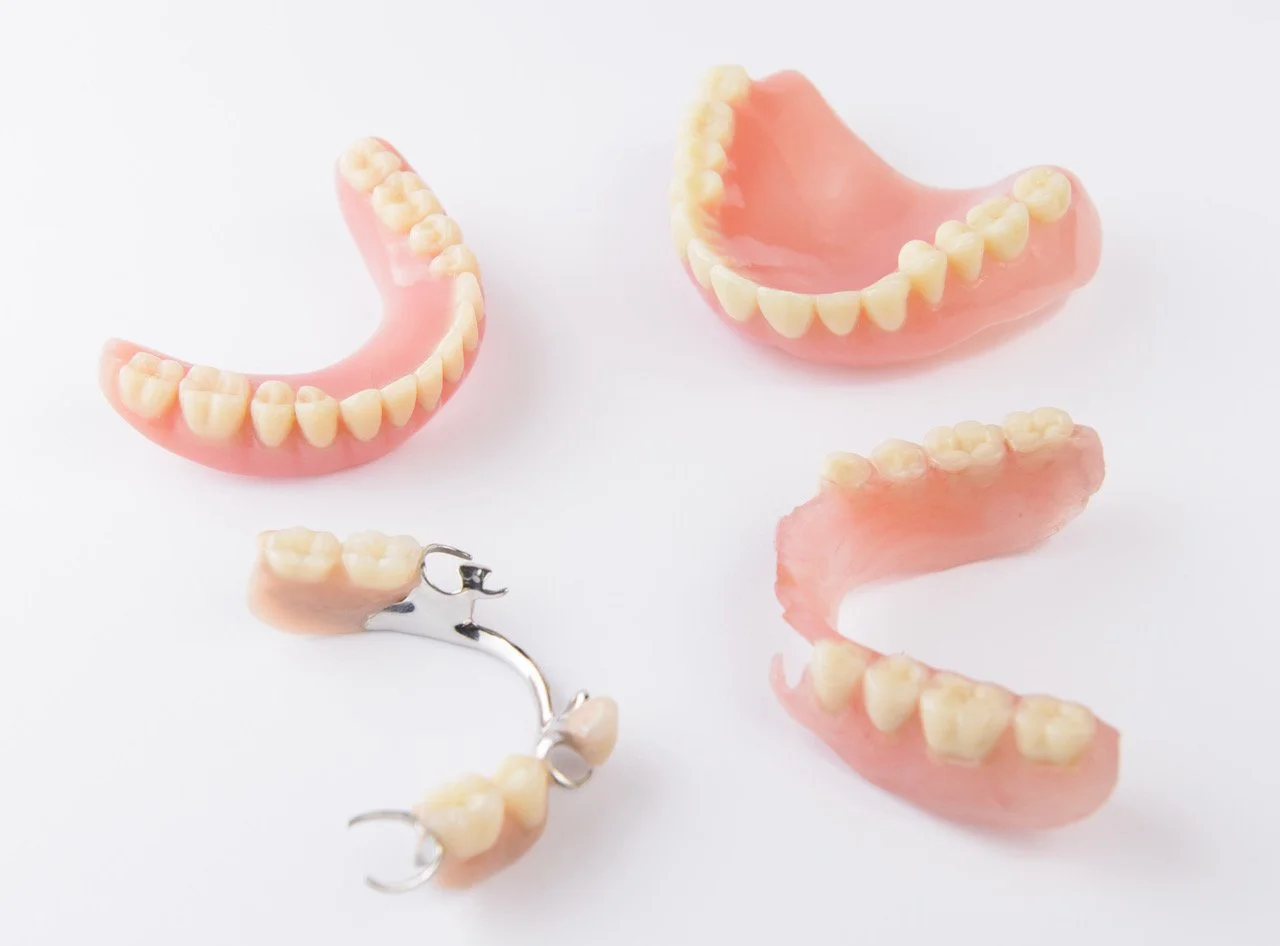DENTURES
Dentures are used for replacing the teeth and soft tissues with a prosthesis that can be removed. They can replace a full arch of teeth (complete dentures), or a number of individual or grouped tooth spaces (partial dentures).
Complete dentures are held in place by forming a seal against the palate and saliva can help significantly with this process. However to significantly improve their stability complete dentures can be held in by implants, in which there is component in the denture which locks into a corresponding component on a dental implant.
Partial dentures can be held in place by design (i.e. they are made to sit into areas which prevent it from falling out), or they can have a metal base with little clasps which sit against the teeth and prevent dislodging. As partial dentures often cover large surfaces in the mouth it becomes more important than ever to ensure excellent oral hygiene routines are followed at home to prevent decay, infections or gum disease.
In all cases, the experience of the patient plays a big part in how the dentures are managed. Many people think that constructing dentures is a quick and easy process, whereas it is often the opposite. It requires experience and skill, both on the part of the dentist and the technician. Dentures can often require up to six visits by the patient, however the process can also take longer if certain stages need to be re-recorded or repeated.
FAQs
-
We strongly recommend that you remove your denture whilst sleeping. This gives your saliva a chance to cleanse the area a denture normally sits in and prevent potential infections from developing.
-
Yes. A tooth can be removed and added to the denture on the same day if planned correctly.
-
It's important to regularly remove plaque and food deposits from your dentures. This is because unclean dentures can also lead to problems, such as bad breath, gum disease, tooth decay and oral thrush. Clean your dentures as often as you would normal teeth (at least twice a day: every morning and night).
-
You should brush your dentures with toothpaste or water before soaking them to remove food particles, soak them in a fizzy solution of denture-cleaning tablets to remove stains and bacteria (follow the manufacturer's instructions), brush them again as you would your normal teeth (but don't scrub them too hard).

